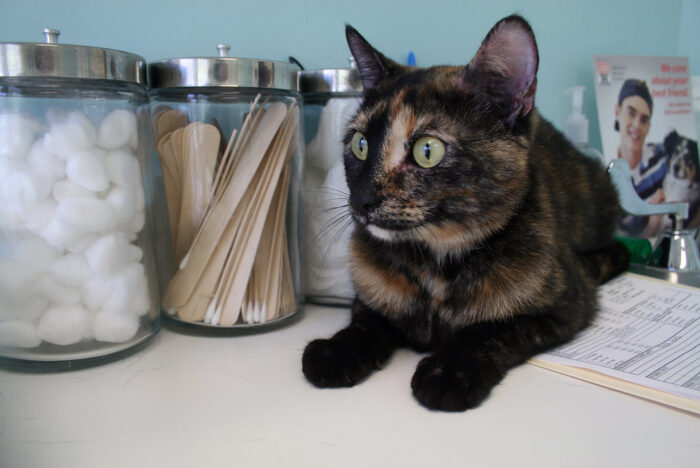Importance of Regular Vet Visits for Your Cat
Taking care of cats can be one of the most fulfilling decisions you make in your life as a pet lover. Cats are smart, easy to take care of, and definitely put a lot of trust in their owners. That said, owning a cat has its own sets of challenges and responsibilities.
One of the major tasks as a cat owner is taking your cat to the vet for regular check-ups. Unlike dogs, cats can be very quiet and aren’t always expressive when there’s something wrong. It can often take a professional opinion to be able to point out small differences in behavior that could be something more serious.
Throughout this article, we’ll be breaking down some reasons why all cat owners need to take their feline friends to the vet regularly. Read on to see how you can make sure your cat is happy and healthy!
When to take your cat to the vet
1) General Cat Health & Check-Ups
Although going to the vet is definitely a go-to strategy when your furry friend is sick, it isn’t enough to maintain their overall health. When you make regular visits, you’re able to find a way to prevent your illnesses as opposed to just curing them when they’re already there.
Your vet will usually want to see your furry pal at least twice a year to make sure that nothing is amiss–this will include getting supplements, vaccinations, and scans. Cats are a lot more vulnerable than they seem–their tails and whiskers are key when it comes to their agility and balance. When these aren’t take good care of, they’re a lot more prone to getting sick or getting into accidents.
Bringing them to your most trusted veterinary clinic can also be an awesome way for them to get used to this environment. This way, any future overnight stays won’t have to be as stressful and unfamiliar for them.
2) Cat Vaccinations & Immunity
In general, cat vaccinations are done on an annual basis. When you get your cat complete shots, you’re giving them more room to roam and play outside because they won’t be as receptive to viruses and bacteria. The annual vaccinations include shots for the cat influenza (feline herpes virus, calici virus), feline enteritis (feline parvovirius), feline luekaemia and feline conjunctivitis (feline chlamydophilia). These are common diseases that really compromise the quality of your pet’s lives.
Cats also need to have rabies vaccinations so you can keep them as a pet. Your cat will usually be given a Pet Passport that has to be filled up as proof once they get vaccinated. This passport can be used for pet travel and mall pet passes.
This is also great for when your pets get into altercations with family members and loved ones. If anyone gets scratched or bitten, you can show them that your can has gotten the right shots and they don’t need to worry. This will also put your mind at ease as a parent, spouse, brother, or sister.
3) Prevent Flea, Tick & Worm Infestations
Parasite infestations are brutal. They’re one of the leading causes of pet disease, discomfort, and death. They don’t just drink your pet’s blood and pollute their fur, they also make your pets feel itchy and weak. They’re also terrible for human health–they infest your home by leaving larvae and eggs in carpets, curtains, and potted plants. Infestations usually start small but need to be nipped in the bud–once it gets to certain level, they’re very, difficult to control.
Infestations don’t just cause problems for your cat’s health, eventually leading to their untimely death–they can also be very unhealthy for human beings. Human beings can also get infested by ticks and fleas. They can bite you and can spread diseases through their bites. Investing in your cat’s health is also protecting yourself, your family and your home.
While this investment might seem like it only extends to your current living situation, it could actually bleed into a big part of your life in the long run. Infestation treatments cost an arm and a leg–plus they also lower the resale value of your home. If it’s a rental, then your deposit will definitely be lost.
4) Cat Behavior & A Wide Network of Professionals
When your cats go for their check-ups, your vet creates a file of their normal behavior and statistics. How do they react to certain types of medicine? Do they like certain types of environments? Are they allergic to any food or drugs? These are all very important as your cat gets older because it could eventually lead to more serious conditions.
5) Cat Dental Care
Your cat’s teeth are very important. Because cats are carnivores, they often suffer from plaque build up and they have smaller, more intricate teeth that need to be professionally cleaned. As they get older, dental problems become more and more common. Make sure that your cats are protected on the dental front. Take them to the vet regularly and nip any budding diseases right in the bud.
A pet’s life is short and precious–make sure you give them the best life possible. They give us so much joy and in turn, these regular trips to the vet can be a way of giving it back to them. Invest in your pet’s health and quality of life–they definitely deserve it!
Author Bio
Katie Elleray is an expert from Sugarland Vet Clinic. She is a proud pet mom of a fluffy cat named Percy and an ebony shiz tzu named Hershey. She’s also a freelance writer of pet-lovers’ and travel blogs and in her free time, she does travel around with her pets.

